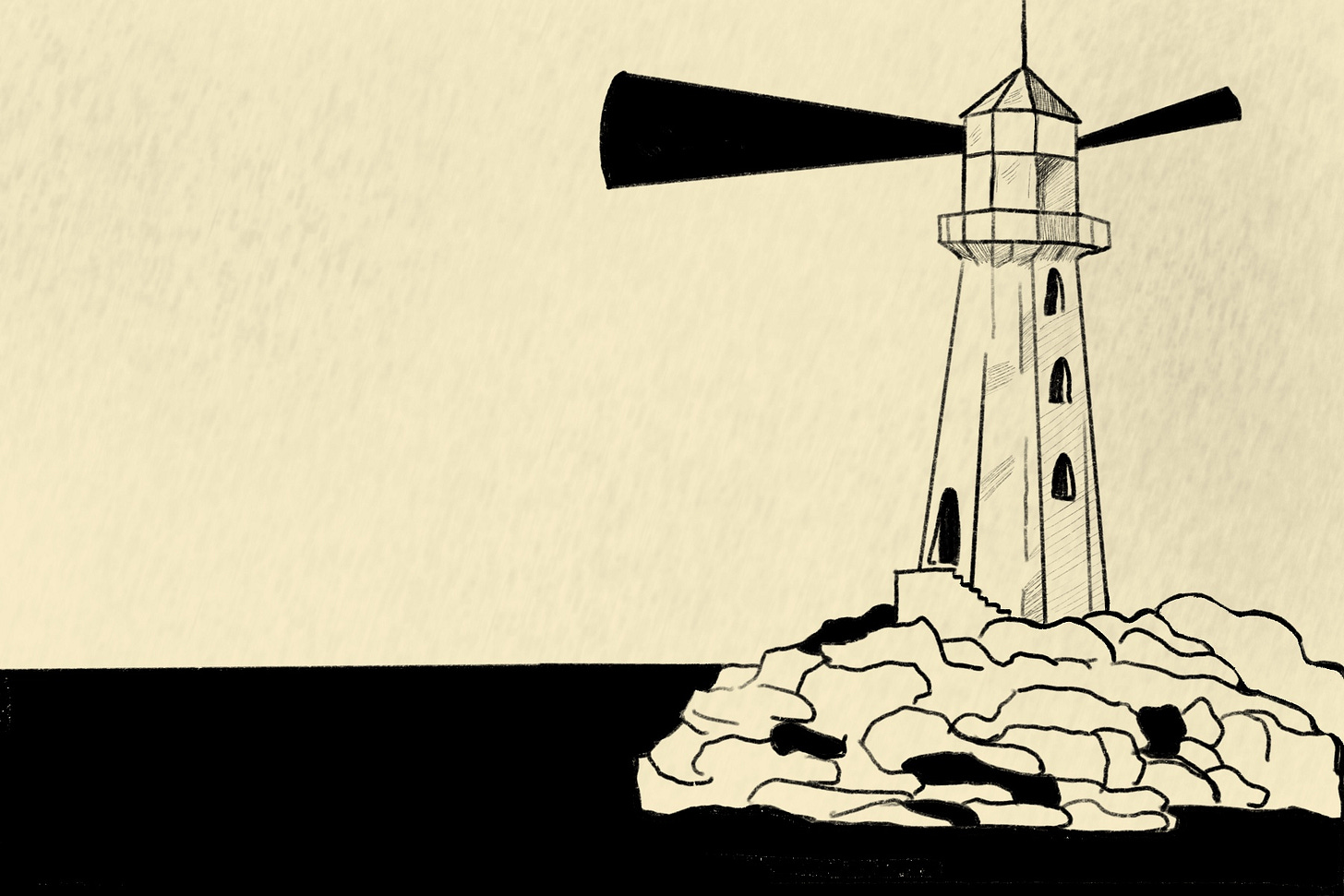#21: There is nothing now but kestrel...
Stepping outside the 'self' with Iris Murdoch
When was the last time you forgot yourself while observing art, fell headfirst into a story and let it take you over, or came back to yourself after getting lost in a harmony of notes? Whenever it was, it was a time when you stepped outside the self and into something bigger than, well, yourself.
Iris Murdoch died in Dublin just short of the turn of the century, but she bequeathed to the world a moral theory that needs clarity, attention and a whole lot of courage to achieve.
Unselfing
The act of unselfing is much, much harder than it sounds. Imagine willingly shedding your skin, or giving up control of your limbs, or seeing something for the first time, every time. Recognising that there are multiple selves trudging, or walking, or sprinting along their own paths. To focus not on what we're thinking or feeling, but on another thing that's just... being. When it's achieved, it's a triumph.
Our everyday points of view are shamelessly narrow and self-centred. Murdoch says,
"Self is as hard to see as justly as other things, and when clear vision is achieved, self is a correspondingly smaller and less important object".
According to Murdoch, the best opportunity to step outside our narrow and self-centred selves is to surrender to nature or art. Oliver Sacks, had he had a chance to comment, would've probably said this much earlier than he did:
The sense of deep time brings a deep peace with it, a detachment from the timescale, the urgencies of daily life. Standing here in the jungle, I feel part of a larger, calmer identity; I feel a profound sense of being at home, a sort of companionship with the earth.
I’d like an order of “detachment from the timescale and urgencies of daily life” myself, quite frankly. It would be easy, if it weren’t so bloody hard.
If we unself successfully, we see things as they really are, not veiled by our own selfish concerns.
But our view of the world emerges from the self, like a lone lighthouse throwing out a beam of light that gets wider as it gets fainter, and excludes an infinite horizon on either side.
Our multiple selves are constantly engaged in dynamic struggles, our “fat relentless ego” brooding over one thing or another. They, Murdoch says, need to be consciously removed from that situation and put in one where something’s undeniably bigger than us:
I am looking out of my window in an anxious and resentful state of mind, oblivious of my surroundings, brooding perhaps on some damage done to my prestige. Then suddenly I observe a hovering kestrel. In a moment everything is altered. The brooding self with its hurt vanity has disappeared. There is nothing now but kestrel. And when I return to thinking of the other matter it seems less important.
In a way, this quote reminds me very much of my nieces. When they cry, they devote themselves completely to their ego. But when something captivating appears in their line of sight, they’re fascinated, enthralled, and have completely forgotten they were crying a split second ago.
How to unself
Even the act of unselfing cannot be forced — because again, this is you exercising your ego and clenching your self. No, to unself, you need to
relax your spirit
surrender control over your rhythms so that it may match the larger environment
welcome the feeling of being struck dumb
disrobe yourself of expectations of art or nature appealing to you
It’s in the same vein as what Jeannette Winterson calls active surrender:
I really believe that human beings can be taught to love what they do not love already and that the privileged moment exists for all of us, if we let it.
As much as it feels like we do, we don’t have to understand everything. In the moment, some things are simply beyond our understanding. A painting that feels like you’ve been dropped in a foreign city that you don’t know the language of. A natural phenomenon that mesmerises you and befuddles you. A moment of time, of stillness, where you have nothing to say to the beauty you’re experiencing.
Before I leave you today, I want to quote Winterson at you again:
When was the last time you looked at anything, solely, and concentratedly, and for its own sake?


